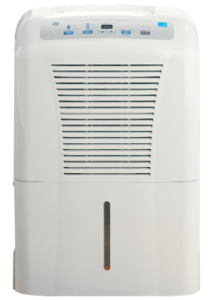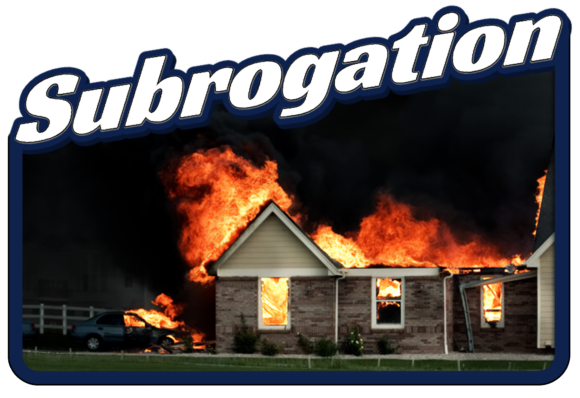American consumers may remember the news about certain Chinese-made dehumidifiers, more than 1.5 million of which were recalled due to their tendency to overheat and catch fire. The manufacturer, Gree USA, in 2021 agreed to pay $91 million in penalties, plus compensation to fire victims.
In the last several years, after the dehumidifiers reportedly caused hundreds of fires, property insurers across the country have filed subrogation actions against the manufacturer, seeking reimbursement for millions of dollars in claims payouts. In one of the latest subrogation claims, Cozen O’Connor, a national law firm that has specialized in insurance subrogation actions, last week filed a complaint in federal court in North Carolina on behalf of Bankers Standard Insurance Co., a Chubb company.
The suit seeks compensation for a 2020 fire at the Glenville, North Carolina, home of John Lupoli. The fire that resulted in a $900,000 claim, paid by Bankers Standard.
“Having paid its customers for the damages to its customers’ property, Plaintiff is equitably subrogated to Mr. Lupoli’s rights to bring this action against those responsible for those damages,” reads the complaint, filed Oct. 13 in U.S. District Court in the Western District of North Carolina.

Gree USA is a subsidiary of Gree Electric Appliances of Zhuhai, China, one of the largest manufacturers of dehumidifiers, air conditioners and other appliances, sold widely under brand names at Home Depot, Sears, Lowes’ and other stores. The suit also names MJC America Ltd., which partnered with Gree to sell the SoleusAir dehumidifiers, the complaint notes.
Although the Gree dehumidifiers have been the subject of news reports and of bulletins posted by the U.S. Department of Justice in the last two years, the Bankers Standard suit spells out new allegations about how the company may have known about the defects but failed to correct them.
Since 2008, Gree has made similar dehumidifiers for General Electric, the complaint notes. In 2010, GE, after seeing overheating and fires from the appliances, instructed Gree to change the design and use a heat and fire-resistant type of plastic. Gree did that for the GE-branded dehumidifiers, but not for those sold under other brands to Gree USA and MJC, the lawsuit charges.
“Gree China did not make the GE-mandated design changes despite actual knowledge that the design and materials defects identified by GE were causing Gree China’s dehumidifiers to fail, overheat, and catch on fire,” the complaint argues.
Gree went so far as to make false representations to Underwriters Laboratories about the safety of the plastics used, so that UL would certify the devices as safe, Bankers Standard said. “Gree China and Gree Hong Kong made these false and misleading representations knowing that the materials and plastics used to manufacture and construct its dehumidifiers were not compliant with UL 94’s burn and flame rate requirements,” the insurer contends.
The UL stamp is crucial because most U.S. retailers will not sell non-UL-listed electric products, the lawsuit notes. The manufacturer also tried to suppress information that it was required to report to the U.S. Consumer Product Safety Commission, the suit charges.
In all, Gree China manufactured and sold more than 1.8 million of the dehumidifiers, throughout the United States.
One homeowner who purchased a faulty dehumidifier was Lupoli, whose sprawling home was in picturesque western North Carolina. The November 2020 fire, which resulted from an overheating device, caused extensive smoke, fire and water damage to the home. Bankers paid the claim.
By then, Gree and the Consumer Product Safety Commission had agreed to a recall of more than 2.2 million dehumidifiers, starting in 2013. It’s unclear if Lupoli was aware of the recall, or why he did not comply. The recall was expanded in 2014 and another major recall was issued this year for 1.5 million similar Gree dehumidifiers.
Altogether, Gree has received reports of more than 2,000 incidents involving its devices, including 450 fires and more than $19 million in property damage, the court documents note.
Lupoli’s homeowners insurance company, Bankers Standard, is asking for more than $900,000 in damages, plus interest.
The number of similar subro lawsuits around the country was not reported in the legal claim. At least one class-action lawsuit was filed in 2017 in California by Cozen O’Connor attorneys and others on behalf of 15 insurance companies, including Homesite Insurance Co. of the Midwest, American Strategic Insurance, Safeco Insurance and Liberty Mutual. That case was settled for an undisclosed amount in 2018. Other suits are pending.
Cozen O’Connor attorney Angela Mason could not be reached for comment about the Bankers Standard North Carolina suit. But other insurance defense attorneys have said that subrogation actions due to manufacturing and construction defects are on the rise across the country – and are worth the effort.
“Gree’s mistakes have cost American homeowners and property insurance companies well over $30 million. These translate into subrogation opportunities which should not be ignored,” attorney Richard Schuster, with the Matthiesen, Wickert & Lehrer law firm, wrote in a 2018 blog post.
Gree dehumidifiers have unique designs that can help experts identify the manufacturer, even if the device is heavily damaged in a fire, Cozen O’Connor attorneys wrote in a JDSupra article in August.
“Thus, only rarely should a subrogation file be closed because the insured cannot identify the dehumidifier.”
Gree and MJC have not yet filed an answer to the Bankers Standard subrogation complaint. Representatives with Gree USA could not be reached for comment Wednesday.
Topics North Carolina
Was this article valuable?
Here are more articles you may enjoy.



 BMW Recalls Hundreds of Thousands of Cars Over Fire Risk
BMW Recalls Hundreds of Thousands of Cars Over Fire Risk  What Analysts Are Saying About the 2026 P/C Insurance Market
What Analysts Are Saying About the 2026 P/C Insurance Market  The $3 Trillion AI Data Center Build-Out Becomes All-Consuming for Debt Markets
The $3 Trillion AI Data Center Build-Out Becomes All-Consuming for Debt Markets  US Appeals Court Rejects Challenge to Trump’s Efforts to Ban DEI
US Appeals Court Rejects Challenge to Trump’s Efforts to Ban DEI 


